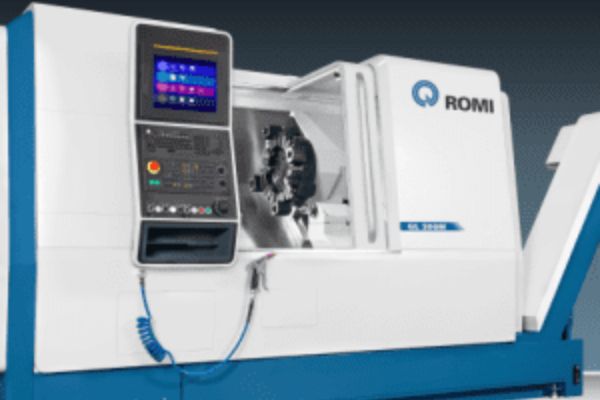
Electronics are the backbone of modern technology, powering everything from smartphones to medical devices. Behind every successful electronic product, there is a partner that produces and assembles it, an electronic manufacturing service (EMS) provider. EMS providers are critical players in bringing ideas into reality by carrying out different processes in the manufacturing cycle.
Whether you are preparing to unveil your next great gadget or would like to optimize your supply chain, it’s essential to learn about these services.
What Are EMS Services?
EMS stands for a package of tailored solutions that electronic contract manufacturers (ECMs) provide to assist businesses in the production, design, and distribution of electronic components or devices. EMS services are formulated to cater to a broad range of needs, ranging from start-ups making prototypes to established companies needing high-volume production.
Certain EMS providers provide end-to-end solutions, while others deal in specific segments of the process. Not only do these services decrease the complexity of operations but also provide access to cutting-edge technologies, vast expertise, and scalability without the need for huge initial capital investment.
Let’s discuss the types of EMS services provided by these providers now.
Types of EMS Services Provided by Electronic Manufacturing Service Providers
EMS providers provide a broad spectrum of technological and industrial services, encompassing the entire electronic manufacturing process. Here is what they usually encompass:
1. Design and Development Services
What It Includes:
EMS providers help with the development and design of electronic products. This involves conceptualization, sophisticated simulations, electronic circuit designing, PCB layout services, and prototyping.
Why It Is Important:
Collaborating with a design provider guarantees you steer clear of expensive errors, maximize functionality, and end up with a product that is ready for the market. For startups, this can accelerate the time-to-market timeline.
Example Use Case: A medical device manufacturer working with an EMS provider to develop an ergonomic, power-saving wearable health monitor.
2. Printed Circuit Board Assembly (PCBA)
What It Entails:
PCBA involves assembling components onto the printed circuit board (PCB). Common techniques include Surface Mount Technology (SMT) and Through-Hole Technology (THT).
Why It Matters:
A reliable PCBA process ensures the durability and functionality of electronic devices. High-quality assembly reduces the risk of system failures.
Example Use Case: Consumer electronics manufacturers working with EMS providers for PCBA services to produce high-resolution display panels.
3. Prototyping
What It Entails:
EMS firms tend to create prototypes of electronic devices, allowing companies to pilot and iterate their designs prior to mass production.
Why It Matters:
Prototyping enables developers to catch functionality, material, or design problems early on.
Example Use Case: An IoT company testing device connectivity and sensors with a prototype provided by an EMS partner.
4. Testing and Quality Assurance
What It Entails:
EMS providers assure products have strict quality levels through functional testing, in-circuit testing, and environmental stress testing.
Why It Matters:
Strict processes enable them to identify defects early, extend durability, and ensure customers get a hassle-free experience.
Example Use Case: Applying environmental stress testing on military-grade ruggedized communication equipment.
5. Material Procurement and Supply Chain Management
What It Entails
EMS providers procure raw materials and components required for production. They usually have relationships with international suppliers to obtain high-quality parts at favorable prices.
Why It Matters:
Procurement outsourcing does away with supply chain hassles and provides continuity of production, particularly during global shortages.
Example Use Case: Automotive electronics firms collaborating with EMS providers to procure specialized semiconductors cost-effectively.
6. Manufacturing and Assembly Services
What It Entails:
This encompasses large-scale production, component assembly, and combining electronic components with mechanical enclosures to create a completed product.
Why It Matters:
EMS providers deal with the complexities of mass production while ensuring accuracy and consistency.
Example Use Case: Producing household appliances such as smart thermostats or security cameras.
7. Box Build Assembly Services
What It Entails:
Also referred to as systems integration, this comprises assembling the finished product, from enclosures to sub-assemblies, wiring, and final inspection.
Why It Matters:
Box build services provide a hassle-free process for bringing ready-to-market products to customers, shortening lead times.
Example Use Case: An EMS partner that undertakes the full assembly of industrial control panels for a manufacturing company.
8. Aftermarket Services
What It Entails:
Handling post-production support such as repair, refurbishment, and reverse logistics.
Why It Matters:
This guarantees the long-term reliability of products and customer satisfaction, which is an essential part of lifecycle management.
Example Use Case: A telecom firm outsourcing broadband device repair.
9. Logistics Support and Distribution
What It Entails:
EMS providers also handle warehousing, packaging, and worldwide distribution to end customers.
Why It Matters:
Smooth logistics provide speedy delivery and minimize overhead expenses.
Example Use Case: A wearable technology firm depending on an EMS partner for distributing products in various countries.
Conclusion
Working with a proper EMS provider can be of great worth to your company. From conceptualizing the initial prototype to logistics support for distribution, a trustworthy EMS company assists you in streamlining every phase of the electronic manufacturing process.
If you’re looking for ways to simplify your production or materialize your electronic product, think about incorporating electronic manufacturing service into your business plan. With solutions that are customized to your requirements, you’ll achieve time savings, cost savings, and provide superior quality to your customers.






